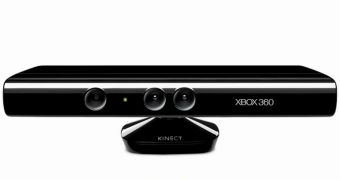Motion tracking is one of the big trends in videogaming at the moment and Kinect, the motion control system formerly known as Project Natal, is the most ambitious of the peripherals that are set to launch this year, promising to allow gamers to experience new titles without the use of any physical controller.
Microsoft has repeatedly said that it expects the fresh gadget to extend the life cycle of the Xbox 360 for another five years and is treating it as the launch of a new home console. But all these efforts might be in vain if gamers are not interested in picking up the device.
The analysts at DFC Intelligence have weighed in on the way Kinect will influence the industry, stating in a monthly brief that “In terms of changing the overall video game hardware platform market share we see [it] having a negligible impact. The Xbox 360 has some good years left, but the platform is clearly on the downside of its lifecycle.” DFC believes the core of the challenges Microsoft is facing is related to its being mostly a software developer and not an entertainment-oriented company.
DFC points to the acquisition of formerly Nintendo exclusive developer Rare as a case study of how the Redmond-based firm can be on the right track, like launching a good videogame (Viva Pinata) and backing it with a big advertising campaign, and still fail to achieve success amongst casual gamers, who are currently more interested in the Wii and the DS.
DFC is saying the Xbox 360 and the Wii will see sales go down during the remainder of 2010, while the PlayStation 3 will continue to see an increase this year and in 2011. Despite the predicted decline, Nintendo’s home console will still be the biggest seller in terms of units.

 14 DAY TRIAL //
14 DAY TRIAL //